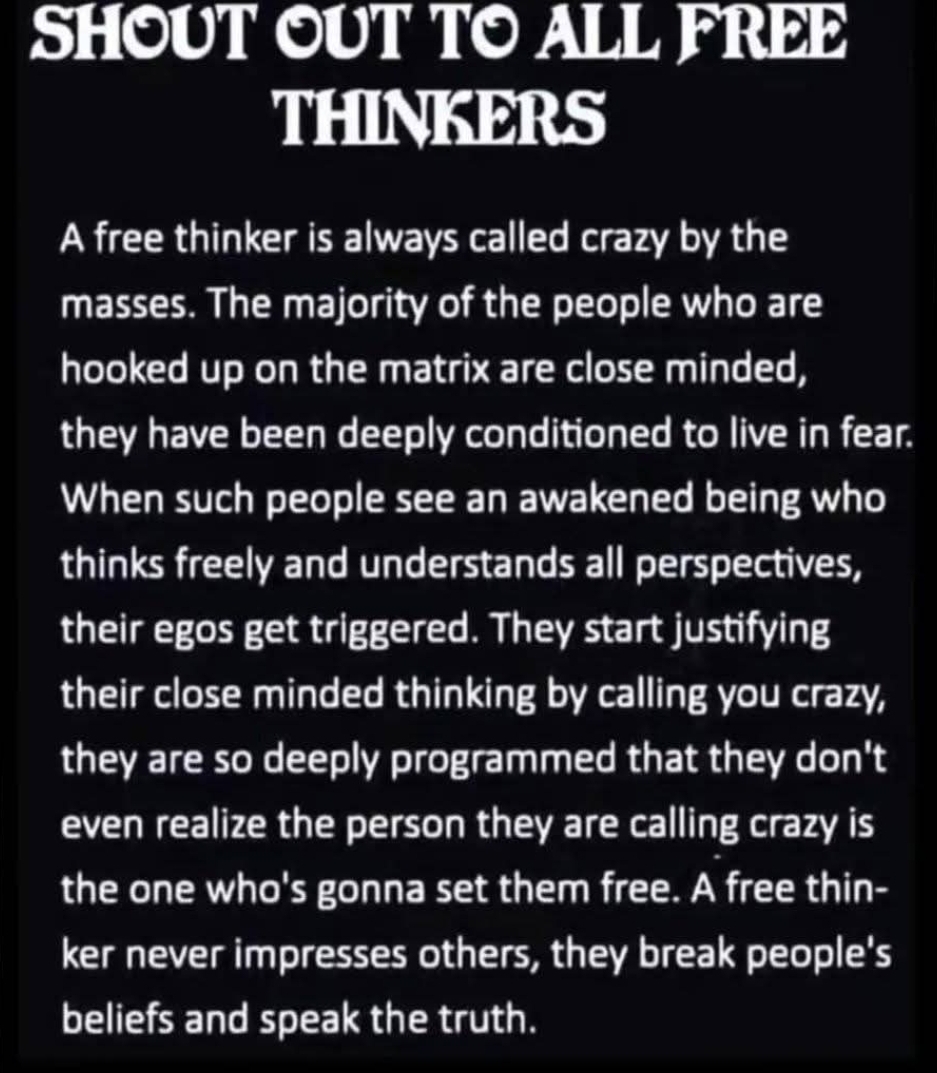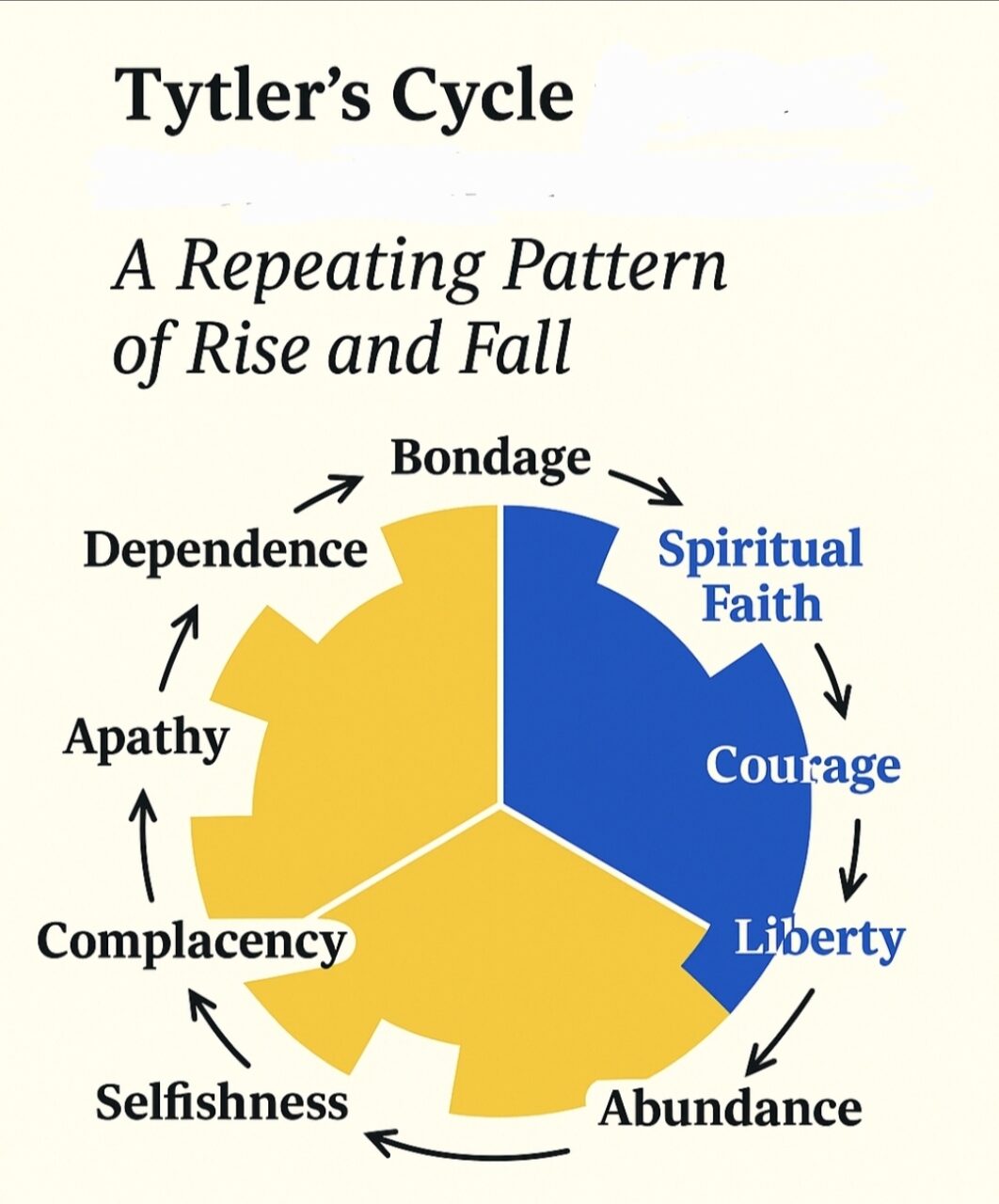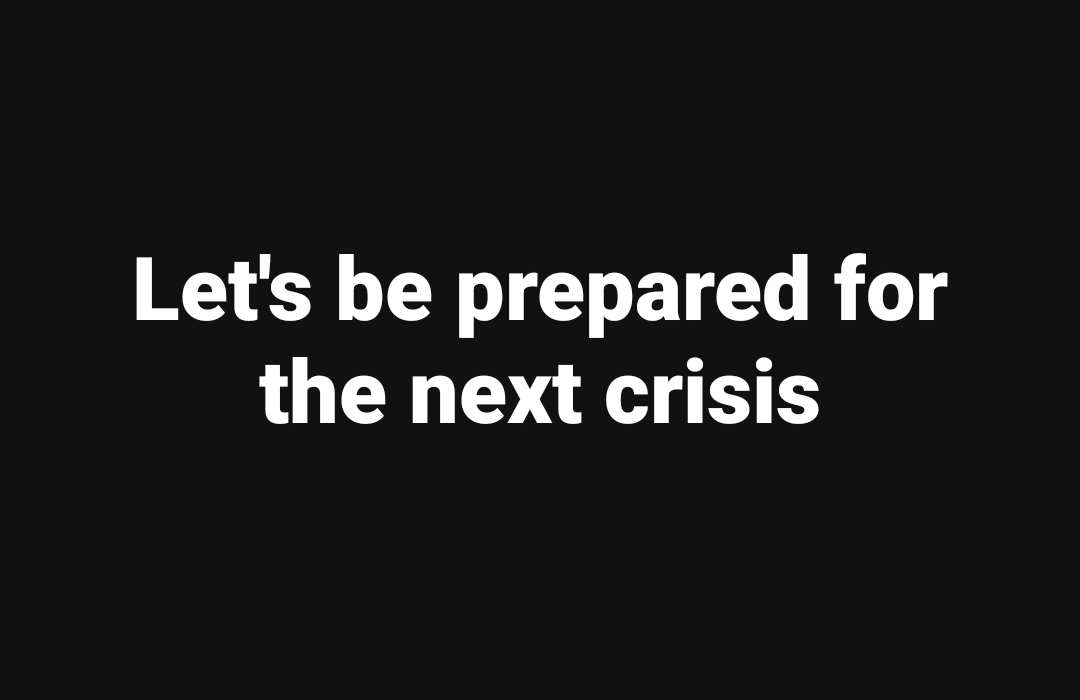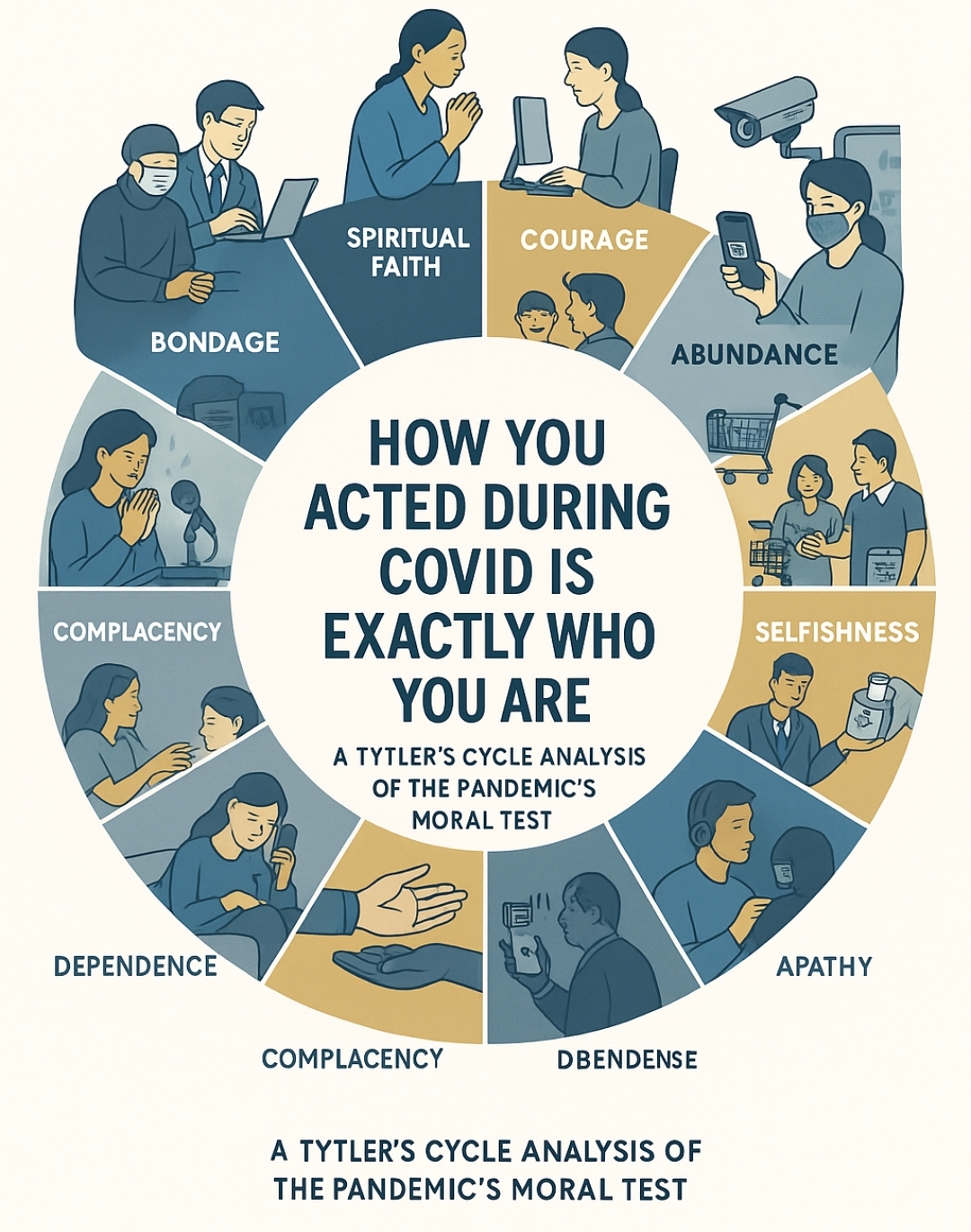Introduction: The Pandemic as Moral Mirror
A crisis doesn’t just test systems—it reveals souls. The behaviors people chose during COVID-19, from blind obedience to vigilant questioning, exposed long-standing patterns of character and culture. As the saying goes, “How you acted during COVID is exactly who you are.” But why? And what did it reveal about us as individuals and as a society?

To answer this, we turn to the Tytler Cycle—a model tracing the rise and fall of freedom across generations. The pandemic didn’t invent new character types; it exposed, amplified, and accelerated them.
The Tytler Cycle: The Arc from Bondage to Liberty—and Back
Tytler’s Cycle (sometimes called the “Fatal Sequence”) describes how societies move through predictable stages:
- Bondage →
- Spiritual Faith →
- Courage →
- Liberty →
- Abundance →
- Selfishness →
- Complacency →
- Apathy →
- Dependence →
- Back to Bondage
The health of a nation is less about its laws or leaders, and more about the virtues, vices, and habits of its people at each stage. COVID became a global pop quiz revealing where we really are.
COVID Behaviors Through the Cycle
Obedience & Compliance (Complacency, Apathy, and Dependence)
Behavior:
- Quickly and unquestioningly following all mandates and restrictions, regardless of context or evidence.
- Shaming or policing neighbors who questioned or deviated from official guidelines.
- Demanding ever more government intervention for safety.
What It Means:
- At these stages, people prioritize comfort, security, and conformity over critical thinking or individual liberty.
- Tytler’s “Apathy” and “Dependence” are marked by trust in authority and a loss of personal agency.
- This group reveals society’s slide toward “Bondage,” where external control replaces inner conviction.
Passive Acceptance (Apathy and Early Dependence)
Behavior:
- Quietly following rules, keeping one’s head down.
- Privately questioning, but not voicing concerns or seeking information.
- Avoiding controversy at all costs.
What It Means:
- Indicates widespread apathy—a disengaged public that prefers peace and comfort over the risk of standing up.
- The “frog in the pot” phenomenon: small erosions of liberty are tolerated if they are incremental.
Vigilance & Questioning (Courage and Spiritual Faith)
Behavior:
- Actively seeking out diverse information sources; comparing official narratives to independent expert opinion.
- Asking for evidence, rational explanations, and logical consistency.
- Willingness to face criticism or ostracism for asking hard questions.
What It Means:
- Reflects the “Courage” and “Spiritual Faith” phases—citizens with an internal compass, able to distinguish legitimate authority from mere power.
- This group holds the “remnant” who remember why liberty was hard-won and who take their responsibilities as citizens seriously.
Defiance & Dissent (Courage, or Rebellious Selfishness)
Behavior:
- Openly resisting mandates—sometimes out of principle, sometimes out of reflexive anti-authority sentiment.
- Some do so thoughtfully, citing historical abuses or constitutional rights; others act out of individualism or mistrust.
What It Means:
- Can be a sign of “Courage,” but not always—motives matter.
- When principled, this is the vital resistance needed to hold government in check.
- When reckless or uninformed, it can be just another form of selfishness or societal fragmentation.

What the Pandemic Revealed
The Loss of Moral Middle Ground
COVID forced binary choices: comply or resist, trust or question, speak or stay silent. There was little room for nuance, and the crisis showed us who clings to comfort, who defaults to authority, and who will risk being unpopular for the sake of truth.

The Deep Roots of Conformity and Fear
In the Tytler Cycle, the “yellow zone” of abundance, selfishness, complacency, and apathy is where societies are most vulnerable. COVID revealed:
- How easily people accept narratives when afraid.
- How quickly neighbors will turn on each other to feel “safe.”
- How rare—and precious—true courage and independent thinking have become.
The Fragile Chain of Freedom
The crisis exposed how close we are to “Bondage”—not just from external enemies, but from our own preference for ease over effort, obedience over wisdom, and security over liberty.
The Lesson for Individuals and Nations
Your COVID response was a snapshot of your place in the cycle:
- Did you ask questions, weigh evidence, and act on principle?
- Did you defer entirely to authority, even when it didn’t make sense?
- Did you care more about approval and comfort than about truth and conscience?
On a societal scale, these patterns show why Tytler’s warnings endure. Our stage is not set by presidents or parties but by the aggregate choices of millions.

Rebuilding Character for the Next Crisis
If you want a freer, healthier society the next time a crisis comes, start now:
- Teach critical thinking and moral courage.
- Cultivate spiritual faith and inner discipline.
- Remind your community of the costs paid for liberty—and the cost of losing it.
- Model vigilance and responsibility, even when it’s unpopular.
Conclusion: Crisis as a Revealer
COVID didn’t just change the world. It exposed it. And it exposed us.
If “how you acted during COVID is exactly who you are,” then what does your response say about you? About your family, your neighbors, your nation?
Tytler’s Cycle shows that every generation decides whether liberty endures or vanishes. The pandemic was a test. Will we learn from it before the cycle turns again—and bondage returns?







